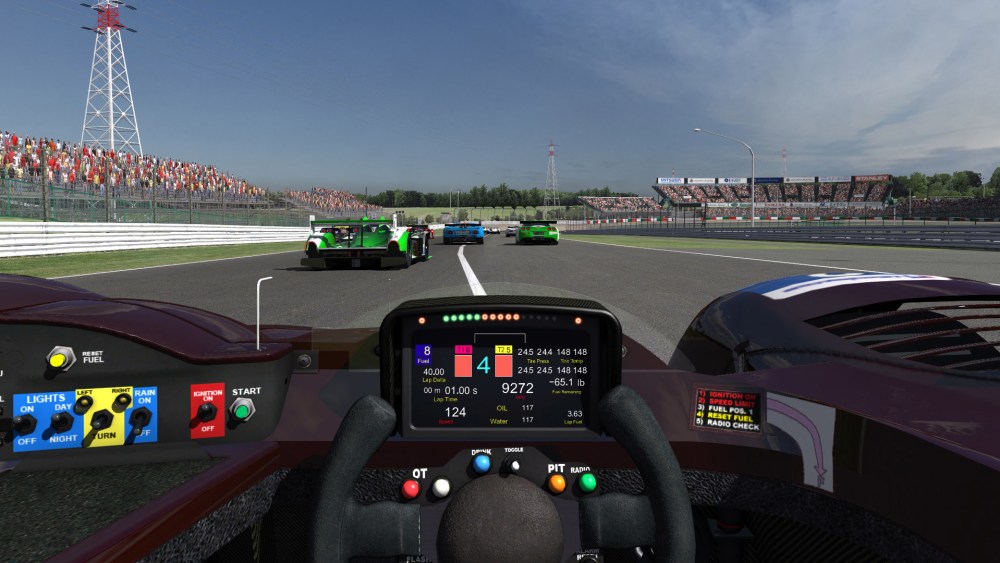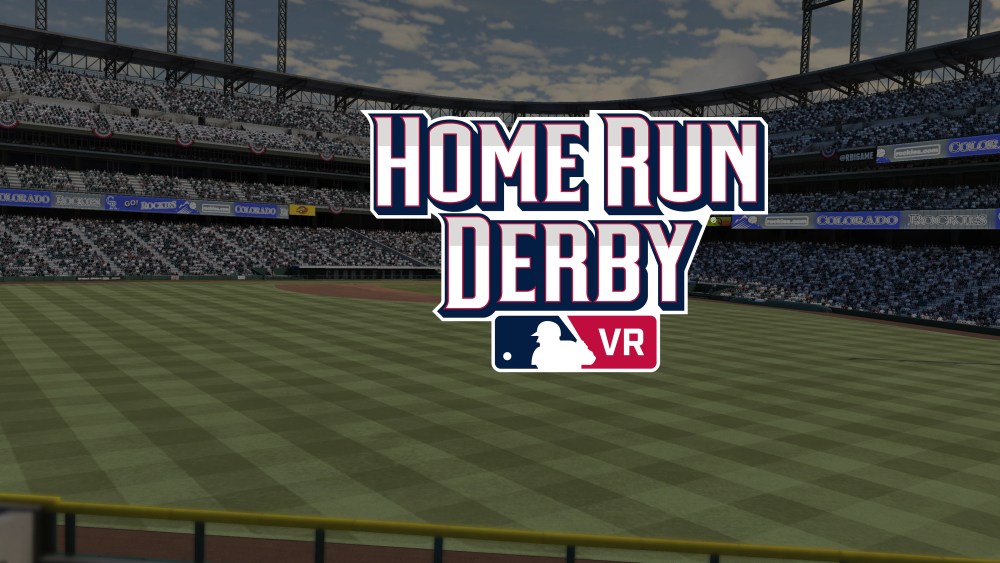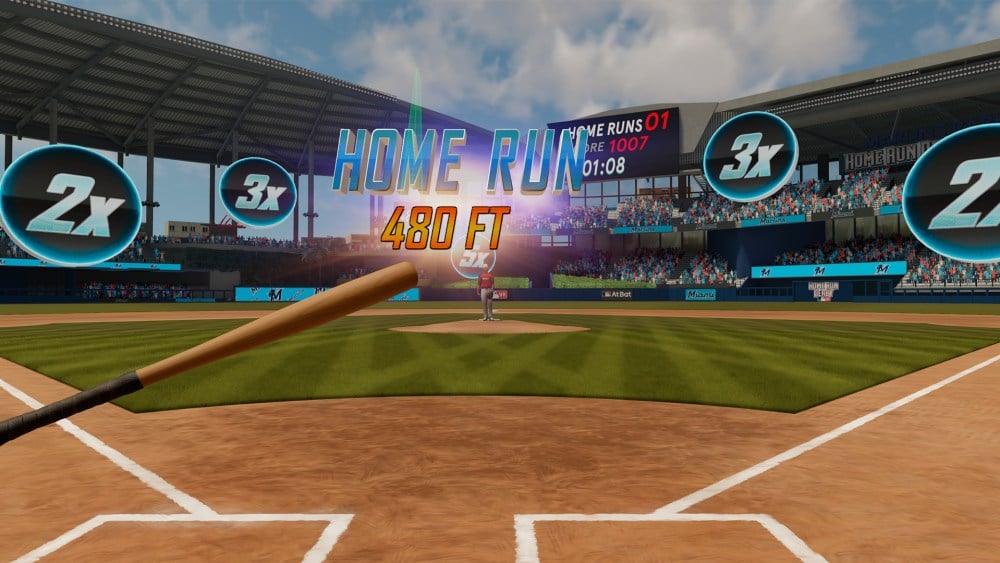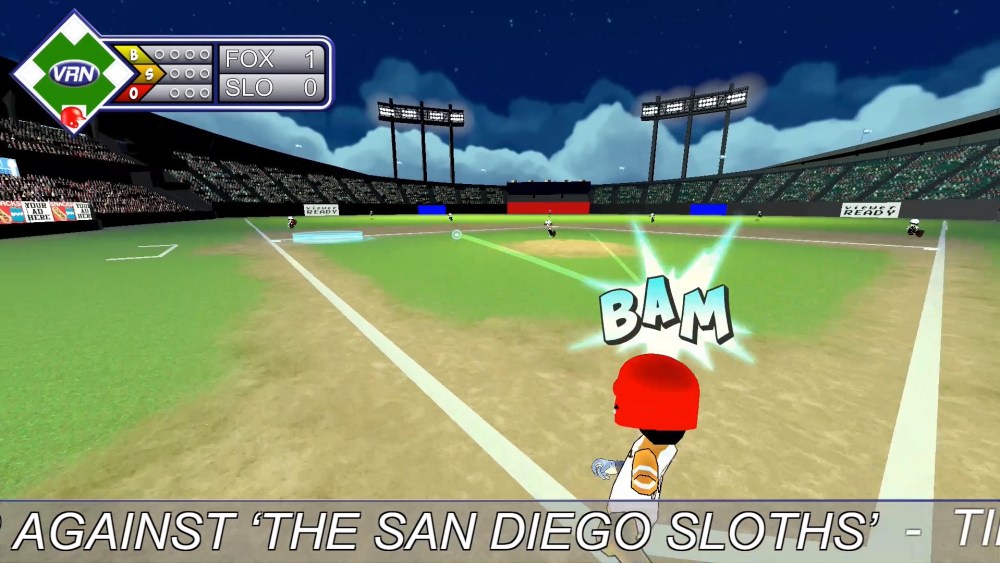Although VR headsets have technically been around for decades, they still feel stuck in a perpetual cycle of infancy. That said, the market is growing and the consumption of VR materials seems to be becoming more mainstream. With that comes the constant battle to improve the overall experience, utilize the latest technology, and keep the retail costs within acceptable parameters. All those things combined create an extremely tough “ask” for developers, and it explains why the VR market continuously feels so fluid. Either way, I am very much into the idea of VR sports games, so let’s chat more.
VR Sports Games
As a consumer, it feels like a rather unstable market, and a market that many large game developers are not yet ready to fully commit to.
Taking a look at the current market, I feel like there are too many headsets right now. They range from the basic entry models (Oculus Go) to some of the most complex systems delivering cutting edge technology and gaming experiences (HP Reverb G2/Valve Index).
That said, the thirst for virtual reality is tangible. Over two million Oculus Go units have been sold and over five million PlayStation VR headsets have been sold. Even the newest Oculus Quest 2 system, which released in late 2020, has sold over four million units. Those are not earth shattering numbers, but it still feels like a big step up for the VR market.
VR Racing
In regards to VR racing, I have a large collection of titles to choose from in my Steam and PlayStation accounts. This includes the likes of iRacing, Assetto Corsa, Automobilista 2, Dirt Rally 2.0, Gran Turismo Sport, rFactor 2, Project Cars, Live For Speed, and more.
While I will always want the latest and greatest in the racing genre to be VR compatible, I have options, and many of those options are titles that rank at the top for me.
VR Sports
When I look at the VR sports titles and where the void is at for me, it comes in the form of realistic experiences in the major sports that I love. Sure, I have MLB Home Run Derby, which is amazingly fun, but once my session is over, I inevitably find myself longing for a full MLB title to play in VR.
The community and developers love and appreciate the idea of a full-on baseball game when I bring it up on social media, but the landscape is empty in terms of games being developed. For those who have never played or experienced VR, MLB Home Run Derby is quite the experience, and it’s one that is immersive in a way a baseball game on standard consoles could never deliver.
After firing up the headset and starting Home Run Derby, the game allows me to choose from every single MLB ballpark. These parks are rendered in 3-D with packed stands that I can look around in full detail while either watching the current attempt at a home run fly through the air or waiting for the next pitch to be delivered.
I use the VR controller as a bat and swing it through the air to make contact with the ball, much as you would do in real life, just with less accuracy and power, and watch it sail over the wall. While the failed attempts at hitting a home run in the game are not the goal, it is here that I really start to see the possibilities of what could take place if the game allowed me to play a full game of licensed MLB baseball in the form of VR.
The pitching mechanics that are in the game are already very well done. So, all that needs to be created and implemented on a VR level is the fielding and running. While that would take some true effort both in development hours and financial resources, if done right, the overall experience would deliver something the community has never experienced before on that scale.
Before the argument of “creating a full game of baseball isn’t realistic” crops up, it has already been done in the form of Totally Baseball. This mimics a little league game, but it does allow you to run, hit, pitch, and field. Now, the game is delivered in a rather rudimentary form, but the basics are there and with more resources it could be fleshed out to be an extremely solid experience.
But it’s not just about one sport, it’s about the three big sports: football, baseball, and basketball (at least to start). Right now, as I mentioned, there are options. However, very few are licensed options, and none offer a full gaming experience that allows me to play the game the way I would if I were playing a Madden, NBA 2K, or MLB The Show exhibition or franchise game.
This brings me back to my original point of big sports game developers lacking either the desire, the resources, or the dollar signs from executives to invest further into this market until the size of the VR pool grows.
Here is one of the biggest issues also facing true sports experiences and VR gaming. This type of experience isn’t one that can be approached with a “dip your toe in” type of attitude. Either developers are ready to jump in with both feet, or we have what we have right now — a series of titles that are cute and fun but mostly empty calories beyond a couple marquee games.
We need developers to have full teams devoted to creating and developing fully fleshed out sports titles that are released alongside the standard yearly sports offerings. Many will say the technology isn’t there, the market isn’t ready for this, and the VR headsets themselves are not strong enough yet. This argument to me always inevitably becomes a “chicken or the egg” type of discussion, which I will always counter with a “if you build it, they will come” rebuttal.
Sports gaming and VR gaming at this juncture feel like two magnets that are pressed against each other. Sure, there’s an attraction, but there is this invisible force that is constantly keeping them apart. We need developers to stop waiting for VR to reach or exceed the console house penetration of 53% as a reason to build a larger library of legitimate sports titles. Instead, build sports titles that are worthy of people wanting to experience them in VR.
The consumer wants the experience, the consumer is ready for that full experience, now we need developers to quit playing it safe and deliver that experience. Otherwise, these giant sports monopolies are just playing into the same old song and dance of proving out that monopolies more times than not just lead to stagnation.













Published: Jan 19, 2022 11:05 am